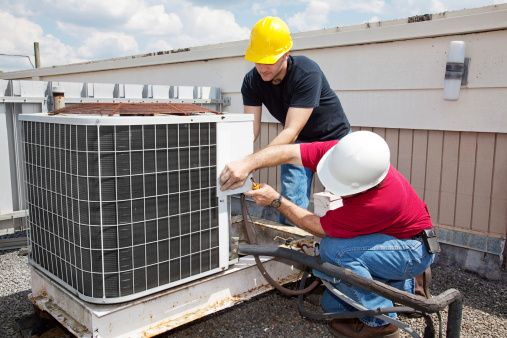While some people are able to repair a clogged drain or a blown fuse, the prospect of commercial HVAC equipment repairs is usually well over the head of even the most handy of handymen. Companies that specialize in trouble shooting HVAC electrical and mechanical problems, however, usually only need to take care of a few issues, since the most common HVAC concerns can be solved relatively quickly. Here are some of the common troubleshooting issues that concern repairs and commercial HVAC replacement.
Air Filters
In the same sense that you need to change the filter of a car engine, a fish tank, or a coffee machine, you also need to change the filters of a commercial HVAC whenever it gets cluttered with dust and detritus. When a filter becomes too clogged up with dirt, it will have to work much harder in order to pump air through the filter, which results in overloads and power failures. In the event that a minimum of air is moving over the coils of the HVAC, furthermore, it will not move the cold air out fast enough, which results in a buildup of ice over the entire coil — effectively choking the unit into failure. So, an HVAC filter should be changed every month.
Fuses
The electricity that flows into a commercial HVAC is just like that which powers any other appliance: when it fails or shorts, it will be unable to run the machine. A fuse exists to ensure that a shortage does not damage the mechanical unit, but a fuse is designed to fail and thus will break down in a matter of time. It can often be easy to tell when a fuse is blown since there will be flash marks from the power around its switch.
Coil Cleaning
The massive amount of air that a commercial HVAC takes in and blows out would move a large quantity of dust around both inside and outside the machine. The evaporator coil on the machine can and will get dirty whenever too much dust accumulates. Since you cannot wipe down the coil, lest you risk damaging the unit, commercial HVAC equipment repairs require sensitive vacuuming. These vacuums will eliminate the objects that cause the coil to heat up: whenever it the programming zone controls read that the unit cannot cool air to at least twenty degrees colder than the exterior temperature, it suggests the coil is too dirty.
Category: Uncategorized Tags: commerical HVAC equipment repairs, trouble shooting HVAC electrical


